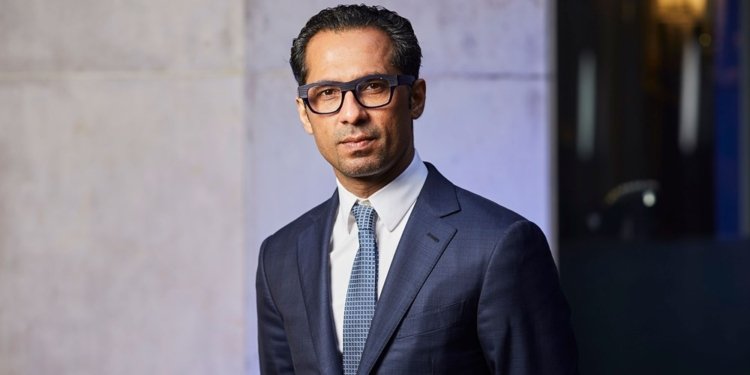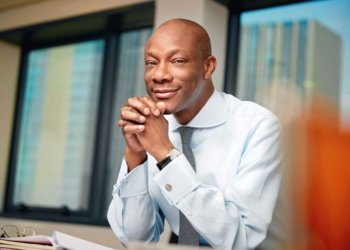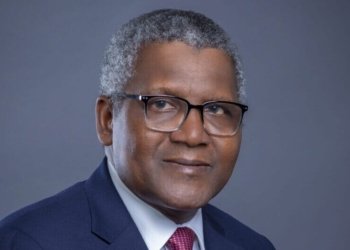What does it take to transform a family business into a billion-dollar empire while changing thousands of lives? The journey of Mohammed Dewji offers powerful answers.
This Tanzanian billionaire built MeTL Group into an African powerhouse. The company started with his grandmother and grew under his father’s guidance. Dewji took it to incredible heights.
Beyond business, he served in parliament for ten years. His work improved access to clean water and education. These efforts transformed countless lives across Tanzania.
Today, his net worth reaches $1.8 billion. He stands as Africa’s youngest billionaire and 17th richest person. His 2013 Forbes cover made history as the first Tanzanian featured.
Dewji’s story shows how business success and social impact can work together. His approach to philanthropy demonstrates that true wealth extends beyond money.
Key Takeaways
- Mohammed Dewji transformed a family business into a billion-dollar conglomerate
- He served as a Tanzanian parliament member for a decade representing his hometown
- His current net worth of $1.8 billion makes him Africa’s youngest billionaire
- Dewji made history as the first Tanzanian on Forbes magazine’s cover
- His philanthropic work focuses on improving access to essential resources
- MeTL Group’s growth story spans three generations of family leadership
- His success demonstrates the power of combining business with social impact
Introduction: A Visionary Leader from Tanzania
Visionary leadership combines business success with meaningful social impact. This approach defines Tanzania’s most influential entrepreneur.
Mohammed Dewji transformed MeTL Group from a $30 million enterprise into a $1.5 billion powerhouse. This growth occurred between 1999 and 2018. His strategic vision drove this remarkable expansion.
The conglomerate now spans multiple sectors across East Africa. Manufacturing, agriculture, and trading form its core operations. Finance, insurance, and real estate represent additional pillars.
Food processing and mobile telephony complete the diverse portfolio. This broad approach creates stability and growth opportunities.
MeTL Group employs over 28,000 people across 11 countries. The company aims to reach 100,000 employees. Its operations contribute significantly to Tanzania’s economic development.
Forbes magazine recognized this achievement multiple times. The business leader appeared on their cover three times. He became the first Tanzanian to receive this honor in 2013.
Forbes Africa named him Person of the Year in 2015. His net worth reached $1.9 billion, making him Africa’s youngest billionaire. This recognition highlights his global influence.
Philanthropy remains central to his vision. The Mo Dewji Foundation focuses on critical community needs. Education, health care, and clean water form its core mission.
This commitment ensures better lives for Tanzania’s next generation. Children gain access to quality learning environments. Communities receive improved healthcare facilities.
Clean water projects transform rural areas. These initiatives create lasting change across East Africa. The foundation’s work complements business growth perfectly.
This integrated approach demonstrates how business success and social development can work together. It creates opportunities for future generations while driving economic progress.
Early Life and Formative Years
From modest beginnings emerge the strongest leaders who understand the value of hard work. The early years of this remarkable individual reveal how childhood experiences shape future success.
Humble Beginnings in Singida
Born on May 8, 1975, in Singida, Tanzania, he entered the world under challenging circumstances. The family home was constructed from sand and mud, reflecting their modest means at the time.
A neighboring midwife assisted with the birth, which nearly ended tragically. The umbilical cord wrapped around his neck during delivery, creating a life-threatening situation known as nuchal cord.
He grew up as the second of six children in a household with deep cultural roots. His ancestors were Twelver Shia Muslims from Gujarat, India who migrated to East Africa in the late 1800s.
By the time he reached school age, his father had transformed their small shop into a thriving import-export company. This early exposure to business operations planted seeds for future entrepreneurial success.
The family‘s upward mobility demonstrated how determination creates opportunity. Their journey from humble traders to successful entrepreneurs inspired his own path.
Education in Tanzania and the United States
His educational journey began at Arusha Primary School in Tanzania. This foundation provided essential learning experiences that shaped his early development.
For secondary education, he attended the International School of Tanganyika in Dar es Salaam. This institution offered broader perspectives and academic challenges.
In 1992, his father made a significant investment in his future by sending him to the United States. He enrolled at the Arnold Palmer Golf Academy in Orlando, Florida while attending Trinity Preparatory School.
For his final year of high school, he transferred to Saddle Brook High School in New Jersey. This international education exposed him to diverse cultures and global perspectives.
He continued his academic journey at Georgetown University, graduating in 1998. His bachelor’s degree in international business and finance, with a minor in theology, prepared him for global leadership.
This educational background combined practical business knowledge with ethical foundations. The blend of financial expertise and theological understanding informed his later philanthropy.
These formative experiences created a leader who values both economic success and social responsibility. His early life lessons continue to influence his approach to business and community development.
Building an Empire: The Rise of Mohammed Dewji and MeTL Group
A fresh perspective from international education combined with local knowledge created unprecedented growth. After graduating from Georgetown University in 1998, the young leader returned to Tanzania with valuable insights.
He immediately assumed management of the family commodities trading business. This foundation would become the launching pad for extraordinary expansion.
Transforming a Family Business into a Conglomerate
Within two years of joining the company, he rose to become chief financial officer. This rapid advancement demonstrated his exceptional financial acumen.
In the early 2000s, a strategic opportunity emerged. The Tanzanian government began privatizing loss-making state companies.
He acquired these assets at favorable prices and implemented turnaround strategies. Streamlining operations and reducing personnel costs transformed them into profit centers.
This acquisition strategy marked the beginning of massive diversification. The company expanded beyond traditional trading into multiple sectors.
Manufacturing, agriculture, and food processing became core pillars. Finance, insurance, and real estate represented additional growth areas.
Mobile telephony and logistics completed the comprehensive portfolio. This diversified approach ensured stability across economic cycles.
Forbes Recognition and Economic Impact
Under his leadership, revenues grew from $30 million to over $1.5 billion. This remarkable growth occurred between 1999 and 2018.
The group now operates across 11 countries in East Africa and beyond. It employs over 28,000 people with ambitious expansion goals.
MeTL Group contributes approximately 3.5% to Tanzania’s GDP. This significant economic impact demonstrates its importance to national development.
Forbes magazine recognized this extraordinary success multiple times. In 2013, he became the first Tanzanian featured on their cover.
Forbes Africa named him Person of the Year in 2015. His net worth reached $1.9 billion, making him Africa’s youngest billionaire.
This recognition highlights how strategic vision can create both wealth and opportunity. The business leader’s approach continues influencing regional economic development.
Political Career and Public Service
True leadership extends beyond boardrooms into community service. This commitment to public welfare defines exceptional leaders who understand grassroots needs.
The journey into politics began with early challenges. At age 25, he won preliminary votes for parliament in his hometown. Constitutional age requirements prevented him from taking office that year.
Tenure as Member of Parliament
Five years later, opportunity returned during Tanzania’s third multiparty elections. The ruling party selected him as their candidate for Singida Urban constituency.
Voters responded with overwhelming support, delivering a 90% victory margin. This mandate reflected deep community trust in his leadership capabilities.
He took office in December 2005, beginning a decade of public service. His parliamentary work focused exclusively on community development initiatives.
This tenure demonstrated how business success could translate into effective governance. The experience would later inform his philanthropic approach.
Focus on Community Development During Office
Personal experiences drove his legislative priorities. Returning home after years abroad revealed stark realities about local conditions.
Children collected drinking water from contaminated puddles. Schools remained scarce and healthcare facilities inadequate. These observations shaped his political agenda.
His office implemented tangible solutions through strategic partnerships. Well construction projects increased access to clean safe water by 60%.
New secondary schools boosted student enrollment by 90%. Healthcare initiatives included distributing mosquito nets and organizing cataract surgeries.
These improvements transformed lives across Singida’s communities. The work established foundations for future philanthropic efforts.
This decade of service created lasting change through practical solutions. It demonstrated how political office could drive meaningful community development.
Personal Life and Challenges
Behind every successful leader lies a personal story of values, relationships, and resilience. These elements shape both character and approach to business and philanthropy.
Family and Values
In 2001, the business leader married his high school sweetheart Saira. They have built a family with three children in Dar es Salaam.
Their home life reflects deep religious values as Shia Muslims from the Khoja community. This spiritual foundation guides their approach to life and community service.
These values directly influence his philanthropic vision. The focus on education, healthcare, and clean water stems from core beliefs.
Creating opportunity for the next generation remains a driving force. This commitment extends beyond immediate family to entire communities.
The 2018 Kidnapping Incident
On October 11, 2018, a shocking event tested his resilience. At 5:35 AM, gunmen attacked outside a Dar es Salaam hotel.
He was arriving for his morning workout without security. Despite his wealth, he maintained a simple routine.
The kidnappers fired shots before driving away with him. This began a harrowing nine-day ordeal for his family and business.
Authorities arrested over twenty people during the investigation. His family offered a $440,000 reward for information.
On October 20, he called from freedom at Gymkhana grounds. He had been released without ransom payment.
Physical evidence showed rope marks on his hands and legs. Police confirmed the kidnappers spoke a South African language.
He believes media attention and political pressure forced his release. This experience demonstrated his profound resilience.
The incident highlighted risks faced by successful leaders in East Africa. It also showed the strength of community support during crisis.
Philanthropy and the Mo Dewji Foundation
Genuine wealth extends beyond financial success to creating lasting community impact. This philosophy drives one of Africa’s most significant philanthropic organizations.
The foundation emerged from direct observations of community needs. Its founder witnessed challenges in access to essential services during his parliamentary work.
These experiences shaped a commitment to sustainable development. The organization focuses on fundamental pillars for community growth.
Founding and Mission of the Foundation
Established in 2014, the foundation represents a natural extension of its founder’s values. Personal experiences with limited resources during childhood informed its mission.
After graduating from Georgetown University, returning home revealed stark realities. Children collected drinking water from contaminated sources.
Schools remained scarce and healthcare facilities inadequate. These observations became the driving force behind the organization’s creation.
The mission focuses on transforming lives through sustainable development. Education, health, and water form its core pillars.
This holistic approach ensures comprehensive community support. It addresses immediate needs while building long-term solutions.
Key Initiatives: Education, Healthcare, and Clean Water
The foundation implements practical solutions through strategic partnerships. Well construction projects significantly increase access to clean safe water.
These initiatives have transformed rural communities across Tanzania. Clean water access improved by 60% in supported regions.
Educational programs include building new secondary schools. Student enrollment increased by 90% in areas with foundation support.
Higher education scholarships empower the next generation of leaders. These opportunities create pathways for personal and professional growth.
Healthcare initiatives demonstrate comprehensive community care. Distribution of mosquito nets prevents disease transmission.
Cataract surgeries restore vision for thousands of people. These medical interventions transform individual lives and community health.
Commitment to the Giving Pledge
In 2016, a historic commitment reinforced this philanthropic vision. The founder became the first Tanzanian to join the Giving Pledge.
This promise dedicates half of personal wealth to philanthropy. It represents one of the most significant charitable commitments in African history.
Only three Africans have made this pledge to date. This decision demonstrates extraordinary dedication to social development.
The commitment ensures sustained support for future generations. It guarantees resources for education, healthcare, and water projects.
This pledge aligns with the foundation’s long-term vision. It creates lasting change across communities in East Africa.
The organization continues building Tanzania’s next generation of change-makers. Its work empowers youth to realize their full potential.
Conclusion: Legacy and Future Impact
True legacy blends business success with meaningful community transformation. This vision defines one of Africa’s most influential figures.
His net worth of $1.8 billion in 2024 maintains his status as East Africa’s richest person. Forbes recognized this achievement consistently since 2011.
Global honors include Forbes Africa’s Person of the Year and an honorary doctorate from Georgetown University. These awards highlight his international influence.
The Mo Dewji Foundation drives sustainable development through education, health care, and clean water initiatives. These efforts transform lives across communities.
His Giving Pledge commitment dedicates half his wealth to philanthropy. This promise ensures lasting support for the next generation.
Future impact will continue through business growth and social development partnerships. His work empowers youth and drives economic progress across the region.
This integrated approach creates lasting change while inspiring new leaders. It demonstrates how vision and generosity can build brighter futures.
FAQ
What is the primary focus of the Dewji Foundation’s work?
The Dewji Foundation concentrates on three main pillars: improving access to education, providing essential health care, and ensuring communities have access to clean safe water. These initiatives aim to create lasting, positive change for the next generation in Tanzania and across East Africa.
How did Mohammed Dewji build his business empire?
He transformed his family’s small trading enterprise into the METL Group, a massive conglomerate. His strategic approach and leadership turned it into one of the largest industrial groups in East Africa, significantly impacting the region’s economy and earning him recognition as a global leader.
What is the Giving Pledge, and how is Mohammed Dewji involved?
The Giving Pledge is a commitment by the world’s wealthiest individuals to dedicate the majority of their wealth to philanthropy. Mohammed Dewji was the first African to sign this pledge, promising to give at least half of his fortune to charitable causes to improve lives and create opportunity.
How does the foundation approach improving health care?
The foundation’s healthcare initiatives focus on increasing access to medical services, supporting infrastructure development, and providing critical supplies. This approach ensures that more people, especially children, receive the care they need to lead healthy lives.
Why is access to clean water a critical initiative for the foundation?
Access to clean safe water is fundamental to health, development, and life itself. The foundation builds water wells and sanitation facilities to prevent disease, reduce the time children spend fetching water, and allow communities to thrive, directly supporting better education and economic opportunity.






